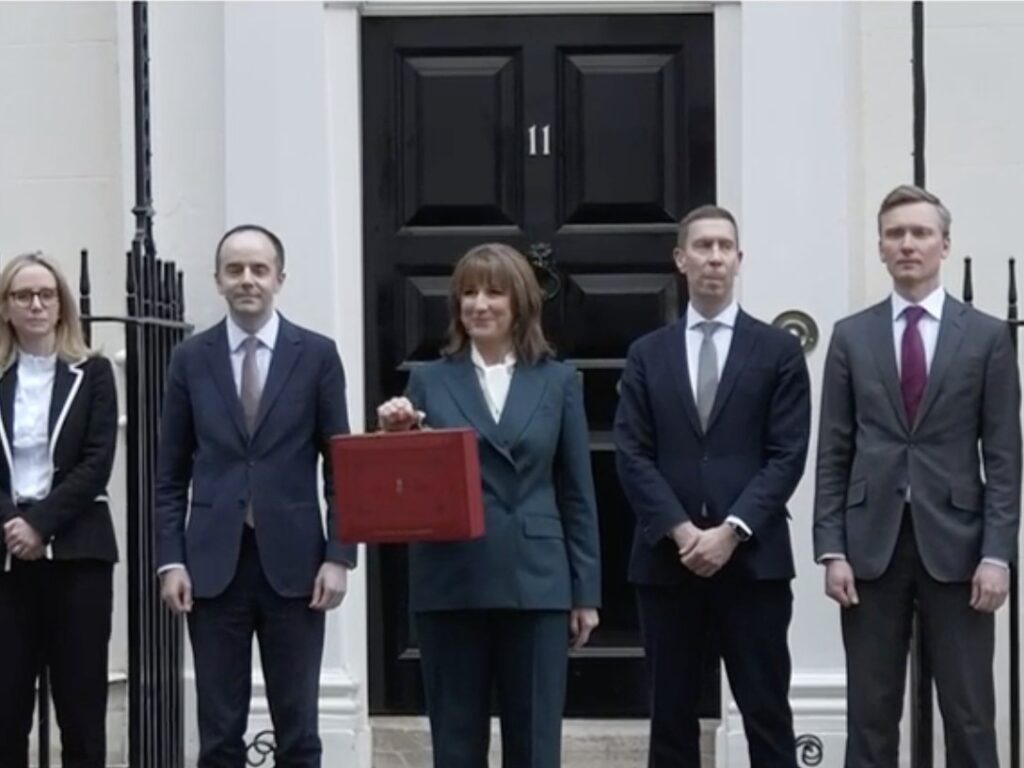Chancellor Rachel Reeves unveiled a series of reforms in the Autumn Budget 2025, with a focus on supporting young people, pensioners, employers, and the wider UK workforce.
Leading up to the Budget, Reeves said she would make “fair and necessary” choices, balancing economic growth with fiscal responsibility.
Labour pledged not to raise income tax, National Insurance (NI), or VAT for “working people” in its 2024 manifesto.
In the Autumn Budget 2025, Reeves left rates for income tax, NI, and VAT unchanged for working people, while introducing targeted tax increases elsewhere.
As part of the changes revealed in the fiscal statement, Reeves announced a guarantee for young people, ensuring every individual will be offered a place in college, an apprenticeship, or personalised job support, with those aged 18 to 21 eligible to claim paid work benefits after 18 months on these programmes.
This initiative aims to close gaps in education and employment, providing employers with a larger pool of skilled and work-ready young candidates and helping to address labour shortages in key sectors.
Peter Cheese, CEO of the CIPD, said: “The announcement of additional support for SMEs to take on an apprenticeship through subsidising the cost of training is welcome and should encourage more small firms to take on an apprentice.
“The further support set out for the Government’s Youth Guarantee is also a positive step.
“However, these measures are still not enough to address the collapse in apprenticeship provision for young people in recent years or tackle high and rising levels of young people not in employment, education or training.”
Cheese added: “With long-term unemployment for young people at a 10-year high, we need bolder action on skills to prevent a lost generation.
“We need an Apprenticeship Guarantee for 16-24 -year-olds, backed by targeted hiring incentives for SMEs to reduce recruitment costs and unlock apprenticeship starts in small firms which have significantly fallen in recent years.”
Changes to Employee Car Ownership Schemes (ECOS), which would have reclassified ECOS vehicles for tax purposes, have been delayed, offering employers and employees continued clarity and stability for now.
The Investment Reserve Fund of the British Coal Staff Superannuation Scheme will be transferred directly to scheme members, allowing them to receive the full benefit of the fund.
John Healey, Member of Parliament for Rawmarsh and Conisbrough, said: “I am very pleased to see the investment reserve returned to scheme members.
“For too long former miners in Rawmarsh and Conisbrough have been denied the pension settlement they deserve.
“Today’s decision puts that right. I am proud that Labour has ended this injustice and taken the decision to deliver what is rightfully owed back to mining families.”
Healey added: “Many local mineworkers have campaigned tirelessly for this, and I know they’ll welcome this result.”
Additionally, pensions accrued before 1997 in the Pension Protection Fund (PPF) and Financial Assistance Scheme (FAS) will now be indexed for inflation, increasing annual payouts and offering greater long-term financial security for affected pensioners.
Overseas access to voluntary Class 2 National Insurance contributions (NICs) will be abolished, preventing individuals living abroad from using the scheme to build UK state pension entitlement.
This measure is intended to protect taxpayers and ensure the residency requirement for state pension benefits is robust, reducing costs to UK public finances.
The Chancellor also outlined new measures to crack down on illegal working, including the introduction of a digital ID system and enhanced enforcement by HMRC and the Fair Work Agency.
This will mean stricter compliance requirements for employers, particularly in sectors reliant on gig workers or flexible labour, and aims to ensure a fairer playing field by reducing exploitation and illegal employment practices.
Capital gains tax (CGT) relief on sales to employee ownership trusts (EOTs) will be cut from 100% to 50% from November 2025, which is expected to raise £0.9bn a year from 2027–28.
For business owners, this means higher tax costs when transferring ownership to employees, which could impact succession planning and sale valuations, though employee ownership remains an attractive option for sustaining company culture and jobs.
Christian Carr, partner at Spencer West LLP, said: “Halving the capital gains tax relief on sales to employee ownership trusts will likely cool momentum in the short term.
“It raises founder tax costs, squeezes headroom for deferred consideration and is likely to bring seller price expectations closer to independent valuations.
“That said, EOTs remain a robust succession route for good businesses because they preserve culture, jobs and independence; it’s not just about the tax.”
Carr added: “The added advantage of creating your own buyer and softer due diligence remain unaffected.”
From April 2029, salary-sacrificed pension contributions above £2,000 annually will no longer be exempt from NICs, affecting both employees and employers.
Employers who use salary sacrifice as a tool for staff retention and reward may need to review their reward strategies, as the change reduces the tax efficiency of higher pension contributions via salary sacrifice.
Charlotte Ransom, CEO at Netwealth, said: “Salary sacrifice is one of the most effective tools workers have to build a meaningful pension, and many employers rely on it to reward and retain staff.
“It has now been confirmed that workers making pension contributions via salary sacrifice will no longer earn National Insurance relief from April 2029 above an annual £2,000 threshold.
“Capping the amount that people can put tax-free into their pensions from their salary will inevitably result in companies scaling back support, leaving workers poorer in retirement.”
Ransom added: “If the Chancellor wants people to pay more tax, this is the wrong place to look. Workers should be encouraged to use every legitimate tool available to manage their tax bills, from maximising pension contributions within existing limits to making full use of ISA allowances. Punishing prudence won’t fix the system, it weakens it.”
Matt Russell, CEO at Epassi UK and Zest, said: “Capping pension salary sacrifice will ring alarm bells across the country.
“It will not only hit the long-term financial health of employees but also impacts businesses who use salary sacrifice as a cost-effective tool to reward staff and boost talent attraction, retention, and productivity.
“These employers will need to find other approaches to support employees or risk losing a competitive edge which will ultimately impact UK growth.”
Finally, the freeze on personal tax and NICs thresholds will be extended for a further three years from 2028, projected to increase Government receipts by £14.9bn in 2029–30.
This will gradually pull more individuals into higher tax brackets and increase National Insurance costs for both workers and businesses over time.
Steven Cameron, pensions director at Aegon, said: “Extending the freeze to 2031 is a major blow for taxpayers.
“It means thresholds will have been fixed for an astonishing nine years, pulling millions more into paying tax, or paying at a higher rate.
“By stealth, this increases the tax burden albeit without any actual rise in headline rates.”
Cameron added: “OBR projections were already predicting that by 2028, millions more would be paying income tax, with significant growth in higher and additional rate taxpayers.
“The 3-year extension will add further millions to this. For those moving into higher tax bands, paying extra income into a pension could soften the blow by securing 40% tax relief.
“Surprisingly, the Chancellor has said those with only the old or new state pension will not be subject to income tax even if their income exceeds the frozen personal allowance.”
He said: “From April 2027, the full new state pension will be at least £12,861, exceeding the £12,570 allowance, which would otherwise have triggered a tax charge of at least £58 a year.
“The extended freeze means both the excess and the potential tax bill would have risen annually, which would have been perceived as the government giving with one hand and taking with the other.
“By 2030/31 the tax bill might have risen to over £500 per year.”
He added: “It’s very welcome that the Chancellor has confirmed state pensioners with no other income will not face a tax charge even if their income exceeds the frozen thresholds.”
The Chancellor said these reforms are designed to create fairer opportunities for young people, safeguard pensioners’ incomes, and ensure businesses operate on a level playing field, all while supporting a sustainable future for the UK workforce and economy.
















